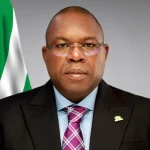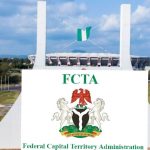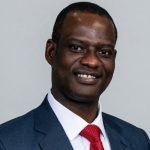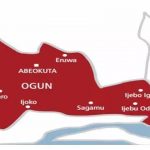Former Senate Leader, Ali Ndume, has expressed concern over what he described as a destabilising surge of defections into the ruling All Progressives Congress by opposition governors and federal legislators.
Ndume, who represents Borno South, issued the caution on Sunday night while delivering his acceptance speech at the Dr. Nnamdi Azikiwe Annual Award Lecture at the NICON Luxury Hotel, Abuja, after receiving the award for “Most Outstanding Legislature and Advocate of National Unity.”
Speaking shortly after being honoured, he warned that the continuous, unregulated entry of defectors could eventually weaken the APC from within.
“I have warned that the APC is becoming overloaded. And when you overload a ship, especially with mostly empty cargo, it risks capsizing,” he said.
“If it capsizes, the owner of the ship will face a bigger problem. That is the situation we find ourselves in today.”
Ndume stressed that contrary to public assumptions, neither President Bola Ahmed Tinubu nor senior APC figures have been persuading governors or political leaders to dump their parties.
“The PDP is uncomfortable playing the role of opposition,” he said. “I am not aware of anyone, especially governors or leaders, the president or any of us has gone to persuade to join us. But when your brother is displaced by a crisis in his party and he knocks on your door, will you shut him out? That is what is happening.”
He noted his dissatisfaction with defectors who, according to him, fail to add value after joining the ruling party.
“Some of them join and remain silent, doing nothing, even after the party has been magnanimous enough to allow defecting governors to automatically become leaders in their states,” he said. “It is like an ordinary church member leaving one church for another and immediately wanting to become the pastor in charge. Or someone converting to Islam and insisting on becoming the Imam. Naturally, this creates problems. That is the confusion affecting our political landscape.”
Ndume urged Nigerians to rally behind President Tinubu but acknowledged that the president’s efforts were being weakened by ineffective appointees.
“We must be united behind our leader, President Bola Ahmed Tinubu,” he appealed. “Some may be surprised because I am often critical of the administration. I speak out because I fear people may think we are failing, yet we have a leader who is willing to listen.”
He argued that the country’s major challenge was inadequate leadership capacity—not from the president, but from officials who should be supporting him.
“One person cannot be the captain, the player, the goalkeeper and the striker all at once,” Ndume said. “When one person is left to run the entire field alone, nothing substantial can be achieved.”
He reaffirmed an earlier remark that attracted public backlash.
“I once said, and many accused me of being abusive, that the government is overloaded with kakistocrats and kleptocrats. We must clear them out so we can move forward.”
Earlier in the event, Dame Azikiwe, widow of Nigeria’s first President, Dr. Nnamdi Azikiwe, commended the organisers for sustaining her husband’s legacy in promoting national unity.
She urged contemporary political leaders to reflect the patriotism and selflessness of First Republic statesmen.
“They are long gone, but their legacies live on,” she said, referencing her husband, Chief Obafemi Awolowo and Sir Ahmadu Bello. “Leaders of the First Republic were selfless—unlike leaders we have now who are bothered about their pockets. I am always happy when people say good things about Zik and what he did.”










